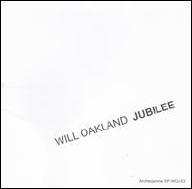Oakland was born Herman Hinrichs in Jersey City to immigrant parents originally from Hamburg, Germany. Upon reaching maturity Oakland opted to enlist in the U.S. Army and, with his discharge about 1905, joined the George Primrose Minstrels in Rochester, NY. It was Primrose who encouraged him to change his name from Herman Hinrichs to Will Oakland. After a couple of years with the Primrose Minstrels, Oakland spent a couple more with the legendary minstrel troupe led by Lew Dockstader. During this time Thomas Edison was scouting for a countertenor or falsetto to be featured on his recordings in response to customer feedback requesting records of a good, high-voiced singer. Edison's men discovered Oakland singing with the Dockstader troupe, and his services were engaged beginning in the summer of 1908. Not long after, Victor began recording Oakland also, and both companies sometimes used a group of male backup singers to provide contrast to Oakland's high-lying vocal range.
One such group was the already established American Quartet featuring Billy Murray, John Bieling, Steve Porter, and William F. Hooley. By adding Oakland they became known as the Heidelberg Quintet and began recording under this name for both Victor and Edison. It is with this group that Oakland made his most distinctive recordings, incorporating ragtime material and other attractive novelties arranged for the group by composer George L. Botsford. Oakland's importance to the group was such that on the earliest pressings of their records, his name was billed separately. The Heidelberg Quintet made its last recordings in November 1914 and Oakland continued as a regular recording artist only through 1916, although he did make isolated records on occasion for Edison, Canadian Victor, Okeh, and Columbia through 1926.
Though out of the record business by the 1930s, Oakland continued to work as a singer and ultimately struck up a friendship with Ulysses Jim Walsh, a pioneer researcher who wrote for Hobbies magazine on the subject of early recording artists. Walsh greatly valued Oakland's advice and reminiscences, and concurrently Will enjoyed a low-level comeback in the 1950s, reissuing his older recordings on a self-produced LP and appearing on #The Ed Sullivan Show. Shortly before Oakland died in 1956 he made a promo record billed as The Hi-Fi Minstrel Man, which qualifies him as belonging to a tiny fraternity of recording artists who began with cylinders and made it to the era of magnetic tape, albeit on the strength of this one record, the only non-acoustic item he ever made. ~ Uncle Dave Lewis, Rovi












